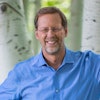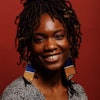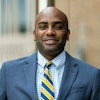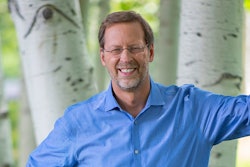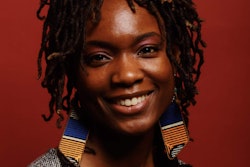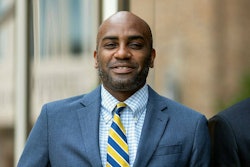The New Academic Year
The short answer to any query about trends in higher education for the upcoming academic year: Ask after the presidential election. The upcoming election may well be the wild card that trumps all others in the deck being dealt to college administrators, faculty and students — not just for 2000-2001, but for the next decade. Will the education community get “four more years” of relative peace under a sympathetic Democratic administration? Or will the next secretary of education receive a mandate to shake up the status quo from Republican George W. Bush and his all-but-certain adviser on such matters, the former National Endowment for the Humanities chair, Lynne Cheney?
One thing is certain: there are issues facing the higher education community that transcend politics. Nevertheless, the political party that occupies the White House will largely decide the outcome of several issues on the table. Black Issues recently talked to a few of higher education’s biggest spokespersons about trends to watch out for as institutions of higher learning plot their course into the 21st century.
The Impact of Technology
“Retooling for technology is an issue that goes way beyond higher education,” says Dr. William Harvey, the new vice president and director of the Office of Minorities in Higher Education at the American Council on Education, formerly the dean of the University of Wisconsin-Milwaukee’s education school. “This is something that will affect every aspect of our lives.”
Dr. Yolanda Moses, president of the American Association for Higher Education, agrees. “How we interface with it [technology], how it’s learned, the ways in which students will have different critical skills, the role of faculty — we’re going to have to take a close look at the impact of technology on ‘the university’ writ large,” Moses says. “Right now, we really don’t know how technology is going to affect us.”
The stakes of not knowing are very high, Harvey adds, and not just for those at risk of being left behind for economic reasons.
“Does the lack of human interaction inherent in the new technologies make it more or less difficult to deal with race?” Harvey wonders. “And let’s not forget the potential impact on particular research disciplines — for example, biological and biomedical engineering. What you have here is the potential to completely reorder the biological systems of human beings. What does that mean for our cultural notions of race and ethnic identity?”
Harvey’s worst-case scenario is a chilling prospect: a return to the systematized eugenics that fueled Germany’s gas chambers. While such a prospect seems distant, Harvey argues that scholars have an obligation to be ahead of the curve in this area.
“This is something that needs to be put on the table — we need to be theorizing about it, talking about it in class. And this is an endeavor that could be of value even at the undergraduate level,” he notes. “They don’t have the answers, but, at this point, neither do we.”
Cross-disciplinary Training
Dr. John Brooks Slaughter, the newly named president and CEO of the National Action Council for Minorities in Engineering, says specific disciplines are no longer appropriate.
Slaughter has led elite private institutions as president of California’s Occidental College and highly diverse public ones as chancellor of the University of Maryland system. He also has served as the director of the government’s
National Science Foundation.
Slaughter says that if he has learned anything from his varied experience, it’s to distrust traditional disciplinary boundaries.
“People who are narrowly educated in a discipline have not achieved the full value a strong educational background can provide,” Slaughter says. “Disciplines, in my opinion, have prevented us from doing the things we need to do.”
This view may come as a surprise to those in the trenches teaching undergraduate history, languages or physics, but it’s one that’s echoed by Harvey and Moses.
“When you think about it, the identification of disciplines doesn’t really have a natural or logical rationale,” Harvey says. “An economic problem, for example, may have sociological or political ramifications, just as a problem in biology may bleed over into chemistry or physics or even ethics.”
Harvey says he too is a strong advocate of cross-disciplinary training. “The more holistic a learning process is, the more appropriate it is,” he says. “In the continuing knowledge explosion, learning a discipline doesn’t necessarily enhance problem solving. We’re going to have to move into a direction that fits where we’re going in terms of the complexity of the lives we’re living.”
The Global Impact
“Globalism is having a huge impact and a generally positive impact,” Slaughter says. “We’re beginning to realize that we can’t remain focused on narrow areas of inquiry, that we can’t just be focused on what’s best for the United States.”
American students are increasingly seeing the world not from the stance of isolationism, but from that of interdependency.
“They’re becoming familiar with ideas and concepts that were, if you’ll pardon the expression, ‘foreign’ only a short while ago,” Slaughter says. “And that’s a wonderful thing.”
A Demographic Shift
College enrollments have been up across the board in the 1980s and ’90s, largely due to an influx of adult students, according to Moses.
In addition to returning students, “the children of the Baby Boomers are going to be going to school,” by the year 2006, Moses says. “That’s going to be a big blip on the screen.”
And there’s an unanticipated wrinkle.
“By the year 2010, half of the professors currently in the classroom will be retiring at the very time when virtually all of America will be going to college.
“So there’s a big need there. We’re going to need professors — and not just in the research institutions. We need professors who can teach, who understand the new teaching and learning issues that we’re facing,” Moses says.
Continuing Education
And with no decrease in the adult student population in the foreseeable future, one of the most important teaching and learning issues will be the evolution of the college as a site for lifelong learning.
“More and more, what we’re doing is educating people not for their first jobs, but for their last,” Moses says. “So what that means is we’re having to rethink fundamental questions: What is the meaning of this degree? What are the competencies students are gaining that will allow them to stay current?”
Institutional Involvement in Community
The days when colleges saw themselves as ivory towers, the days of town-and-gown divides that were more like chasms, are drawing to a close.
Harvey says that educational institutions will play an increasingly significant role in their surrounding communities. The University of Southern California, New York University, the University of Washington, the University of Georgia and the University of Wisconsin-Milwaukee, according to Harvey, are all schools that are endeavoring to forge what he calls “effective connections” with their surrounding communities.
“We’ve begun to go beyond the presumption that the only person to whom this institution and this experience has value is the enrolled student,” Harvey says. “We need to demonstrate that what happens on campus has impact and value on the economic, social and artistic well-being of the entire area — that we are indeed part of the way in which a community flourishes.”
